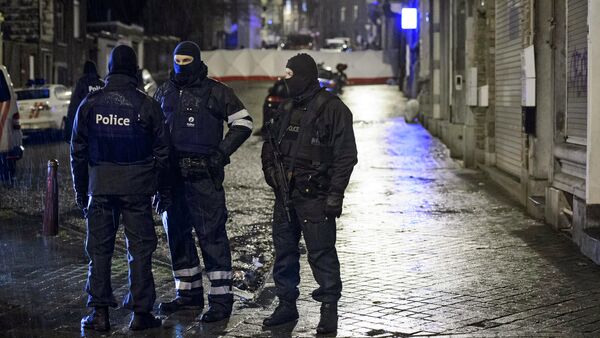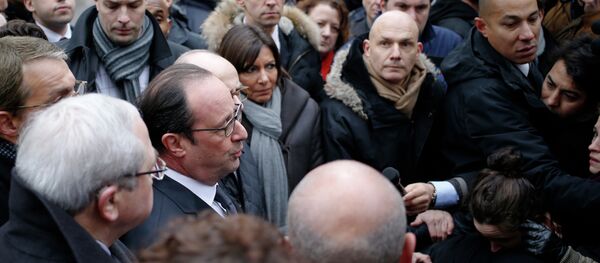Is the Charlie Hebdo tragedy an episode or rather a beginning of a chain of similar events that may plunge Europe in a deep internal conflict?
The European crisis has revealed a structural weakness in the European political system technically disconnected from its citizens. The great fear that Europe had in 2014 of going to war with a neighbour led, in 2015, to a real return of politics: we saw a Juncker Commission that decided to legitimize its political decisions, national governments finally aware of the need for effective political action, highly mobilized citizens.
Did it produce any tangible results? Made European politics more effective?
Marie-Hélène Caillol: All this would be rather reassuring if conditions had stabilized. But this is not the case since Europe is preparing to sustain a series of shocks associated with terrorist activities that are sure to be perpetrated by individuals or groups of individuals living in Europe but poorly integrated and connected to the terrible developments that the Middle East is currently experiencing. Now, in such a context, the return of politics can take an undesirable shape.
The year has quickly brought itself up to date with this bloody attack against the employees of the French satirical magazine, Charlie Hebdo, and the murderous chase which followed.
What impact may it have on the moods of ordinary Europeans? Do you see a danger of radicalization, especially from the far-right?
Marie-Hélène Caillol: Obviously, we have to keep in mind that beyond the chain of events that a regional scale conflict would have on the entire planet, a particularly worrying point for the time being taking into account the consequences that the outburst of hatred between Middle East’s communities would have on Europe. The verbal violence between Jews and Arabs is already huge, sporadically degenerating into more serious clashes. The explosion of anti-Semitism and racism is inevitably on the EU programme if the tensions develop in the way we are now observing. And this violence will also inevitably lead to the tipping of our weakened democracies which will be unable to stem it other than outside the rule of law.
Do you see any signs of recovery, positive reaction?
Marie-Hélène Caillol: Unfortunately the event is an opportunity to usher in a racist outbreak in France, but also in the whole of Europe and beyond, combined with the introduction of draconian measures.
But for once, Europeans were entitled to a nice surprise: almost exemplary crisis communications led by François Hollande, capitalizing on the more acceptable fears — that of a social explosion, managed to change the collective emotional reaction a priority with racist hints to a demand for non-linkage, no libertarian drift and union.
On 11 January, a rally of almost four million citizens in France and throughout the world, as well as the presence of 40 heads of state at the head of the procession, is truly an historic event and conveys a truly positive message, whatever one thinks of the true motivation for the gathering.
Actually, in fact, many questions arise on what has really reunited all these people: a mixture of a reaffirmation of badly understood republican principles and true concern for the preservation of democratic values, an expression of exasperation vis-à-vis a poorly integrated Muslim community and a will to bring together the moderates of all the religious communities, seeking order and seeking freedom, lack of discrimination and tolerance,… there was a little of everything in this rally. But regardless, the dominant message is generous and rather successful.
Marie-Hélène Caillol: This major gathering is not the end of the story. Anti-Muslim acts have multiplied since the attack; the police are on red alert and the young of Arabic origin are being checked hand over fist; ideas of a European style “Patriot Act” crisscross society; once again the Muslim community is offended by a front-page publication on the current issue of Charlie Hebdo caricaturing their Prophet… so many reactions which will inevitably feed the ranks of identity fanaticism and increase the risk of violence.
Furthermore, the demand for freedom of expression is in the process of ending the lock which had been placed on criticism of Israel and the Jews. If the cartoons of Mohammed are no longer racism, then many “jokes” may no longer be called anti-Semitic too. On the merits, this release of the right to mock and criticize others would probably be a good thing but it comes at the worst possible moment. Everyone knows that 2015 runs huge risks of racist and anti-Semitic drift (since we must distinguish between the two). And just at this moment, the safeguards of intergroup communication have been lowered.
Is Europe ready — institutionally, legally, morally — for such a clash? Are there any other models that could be implemented to avoid the clash between communities?
Marie-Hélène Caillol: However French and European laws, born out of a history of religious wars and intolerance, do not advocate complete freedom of expression. This claim is actually modelled on the US where freedom of expression is absolute and sacred… even if it’s only respected in the context of non-public expression. The organs and public figures have, in turn, speech extremely controlled by the famous “political correctness”, particularly on all questions of minorities and religion. In Europe on the other hand, “political correctness” is applied less precisely because freedom of expression has a legal framework here.
One thing is certain. If European Muslims are forced to accept what corresponds to very strong cultural baiting in a context of public expression which remains tightly controlled for other cultural groups (homosexuals, Jews, etc…), there will be division. The challenge is to balance the freedom of expression in order that it doesn’t degenerate into provocations and racist abuse from all sides; all the same it’s going to be necessary to reiterate the rules of communication which are certainly free but also responsible.
Beyond the great, generous impulse of 11 January, countless questions remain on how to stem the wave of racist and terrorist violence that has begun to sweep over Europe, with respect to our democratic principles. This is the big challenge in 2015.


